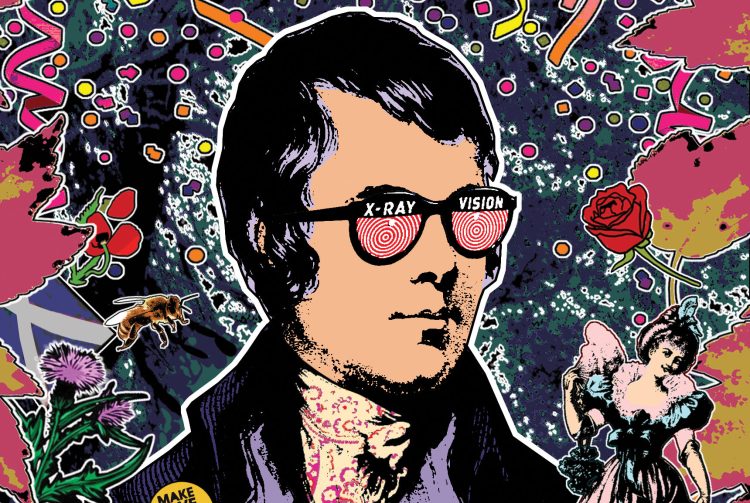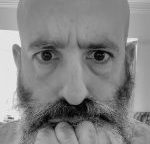Last night, I watched episode two of Surgeons: At the Edge of Life. This time on the iPlayer.*
There were two patients with rare and complex conditions undergoing surgery; one a woman with a growth destroying her face and the other an older woman with an equally rare condition affecting her spine and brain-stem.
Neuro and Maxillofacial surgeons were involved in the intricate operations which both took over ten hours, in the case of the woman with the brain-stem condition, she went back for a second even more obscure procedure in an attempt to remove some of the tumour the surgeon couldn’t get the first time around.
Like episode one it was fascinating.
What stood-out for me was the politeness of the surgeons. No matter the pressure or the urgency, requests began with please and often ended with thank you.
This is being polite.
Does it matter?
Of course!
Sure, were the operation performed by robots this wouldn’t be the case, but, fortunately it will be a long time before robots are even able to undertake the most rudimentary forms of surgery, such is the complexity, the unpredictability (robots operating on robots is something else) and the necessity for synchronised team work that means it isn’t just having one computer that can perform the surgery, but several that all must communicate simultaneously and seamlessly.
Computers are not my point.
I remember, back in 1998 working with a crazed Irish surgeon.
The last thing he considered were the feelings of his team; he was blunt, quick to temper and on more than one occasion, stabbed me with a needle whilst swearing as he fiddled with someone’s intestines.
This guy lacked insight.
He certainly made the three months I worked with him miserable.
There is a notion that sometimes it is OK to be rude or condescending, to shout or display behaviour that could be construed as bullying, ‘Given the circumstances,’ kind of thing.
I disagree.
Over the years I have seen a couple of respected colleagues who for the most portrayed an externality of calmness and kindness behave in absolutely terrible ways, often when speaking with nurses, and, sometimes secretaries.
Note, that for the doctors, I have never seen this between other medics.
You might say, ‘The situation was unprecedented, a one-off,’ I don’t accept that; for if it were just an extreme event, it wouldn’t matter who you were exploding to or at; patients, professors or visiting CQC dignitaries, all would all be fair-game.
No.
What I want to examine in this blog is the subject of insight as I believe it is core.
Insight is a complex human phenomenon, best I think summed-up by Robert Burns – ‘If we could see ourselves the way others see us.’
O wad some Power the giftie gie us
To see oursels as ithers see us!)
To A Louse, On Seeing One on a Lady’s Bonnet at Church.
Do you need to have insight to be an effective doctor, nurse or pharmacist?
Certainly, those lacking this seem to struggle.
They often go around upsetting and offending, appearing mean and unfeeling.
Now, I know that the majority of these folk are good people (gutte neshumas) – healthcare does attract the odd psychopath, but not as a rule; it is that they don’t perceive the effect of their words or actions on other people, and, in the rare situations where this is brought to the fore, it can be very upsetting, even devastating–
‘Did you realise that every time you walk in the room all the staff are on alert, waiting for you to criticise, pick-on or otherwise attack them?’
Insight is a big area and the specific I wanted to consider here; is it essential? In other words, can you have a fantastic surgeon who lacks insight? Who has the most incredible technical ability, their hand steady, mental representations of obscure anatomy second to none, or, is this such an impediment that nothing good will ever come of their actions?
I don’t know –
If it was me with the tumour, would I rather have a highly skilled technical doctor who lacks all insight into interpersonal behaviour or one who hasn’t the requisite skill but is a sensitive soul, considering the emotions of those around them?
My usual trope is that I’d try to find someone who was adequate in both areas, at the very least.
It isn’t easy being a good nurse or therapist.
It takes intelligence, sensitivity and skill.
And often, lots of practice (which means, sometimes getting it wrong, learning, adapting and improving – a component of life which requires insight.)
Should we test or screen for insight at university?
‘I’m sorry you can’t become a doctor as your insight scores are too low.’
Does or can insight change over time, with experience? Can it be learned or acquired? What is it that makes someone see the feelings as another as so significant as to be physical, rather than an optional extra?
I don’t propose to have an answer to this, and I would be interested to hear what people think.
Or, failing that, please tune-in on the iPlayer.
Have a good weekend.

*This will be taken-off the iPlayer in 5 days… Be quick!


A banquet of food for thought! I’m really interested to know, from my friends who are Urologists if, with the advancement of Robitic surgery they feel less connected to their patients operating 3 metres away behind a screen unscrubbed. Is the physical act of touching the tumour, organ etc what keeps a person humble and provides some insight into the human condition? In the quest for technical advancement are we training robotic surgeons to be robotic surgeons?
Similarly in Medicine et al do set ups such as ‘advice and guidence’ and Telemedicine take away what’s integral to a Doctor patient relationship or does it not matter to the old lady having a stroke on a weekend if the stroke consultant is by her bed reassuringly touching her hand or being wheeled in on a TV screen? Or for my GP concerned enough about my condition to email a specialist and receive the reply “Dr X at the hospital doesn’t think it’s anything to worry about” would the advice of a person who’s not met me stop me being worried? I think not.
LikeLiked by 1 person
Hi Jo, fascinating questions. I am sure they are being considered by people all over health and social care.
Ten years ago, my mum in sheltered accommodation had a disembodied voice ask every morning, ‘Are you OK Sheila?’ – no response or anything other than, ‘Yes, all fine,’ would trigger a phone call.
Before this people used to have wardens who would pop in and check to make sure people are OK – now this is mostly centralised.
It costs less but the likelihood of an ambulance being called is far higher when there isn’t a personal relationship involved (we call this continuity of care) –
The next step would be Siri asking, ‘Are you OK?’ and actions dependent upon AI algorithms.
This will mean we don’t even need the person in the call centre.
Perhaps from the savings we could employ wardens again to do the human element?
The roboticisation of medicine is happening all the time – frequently summed-up as ‘not a surgical problem’ or ‘normal CT’
LikeLike